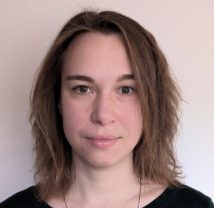
Short biography
My academic journey bridges education, sociology, and disability studies, with a particular focus on the intersections of policy, identity, and inclusion. I hold a BA in Education from the Moscow Humanitarian Pedagogical Institute and an MA in Gender Studies from the European Humanities University (Vilnius, Lithuania), where, having a disability myself, my thesis examined the representation of autistic women in media. During my Master’s, I was awarded the Vladimir Fours Excellence Scholarship. I am currently a recipient of the Excellence Scholarship from the Ministry of Aliyah.
Before my MA studies, I spent multiple years working in school environments, teaching languages and humanities in English. I also obtained teaching certifications from the University of Arizona and the University of Cambridge. With this strong pedagogical foundation, I worked as a teacher and methodologist, developing engaging, interactive curricula, and later as a senior teacher, mentoring colleagues toward pedagogical excellence.
My PhD thesis, Youth Activism-Related Policies: A Comparative Analysis, investigates how youth activism is framed and regulated across different policy levels and national contexts.
Within the first year of my doctoral studies, I have collaborated with American and Italian postdoctoral researchers on articles exploring youth activism, as well as with Professor Tatyana Khavenson on research into social media spillover during globally traumatic events.
Beyond my core PhD research, I pursue independent scholarly work on topics outside the lab’s primary scope, including identity formation and recognition in multicultural societies. My academic approach combines critical policy studies, discourse analysis, and sociological theory, informed by both personal and professional engagement with issues of belonging, activism, and representation.
PhD project
The study examines youth activism-related policies across international, national, and curricular levels in Australia, England, and the USA. It integrates the Narrative Policy Framework (NPF) and Critical Discourse Analysis (CDA) to explore how international organisations’ discourses are translated into national education policies and school curricula, and how these processes shape young people’s civic opportunities.
The research involves:
-
International level – Analysis of policy documents by UNESCO, UNICEF, the World Bank, ILO, the Commonwealth, and UNHCR.
-
National level – Analysis of youth-related education policies in the selected countries.
-
Curricular level – Analysis of social science curricula, focusing on representations of activism and civic participation.
By mapping alignments and tensions across these levels, the project seeks to reveal how multi-scalar policy environments influence educational understandings of activism.
Participating in projects: Youth activism (STUDACT)
Hobby: growing plants, rock climbing, sign language, and more research



